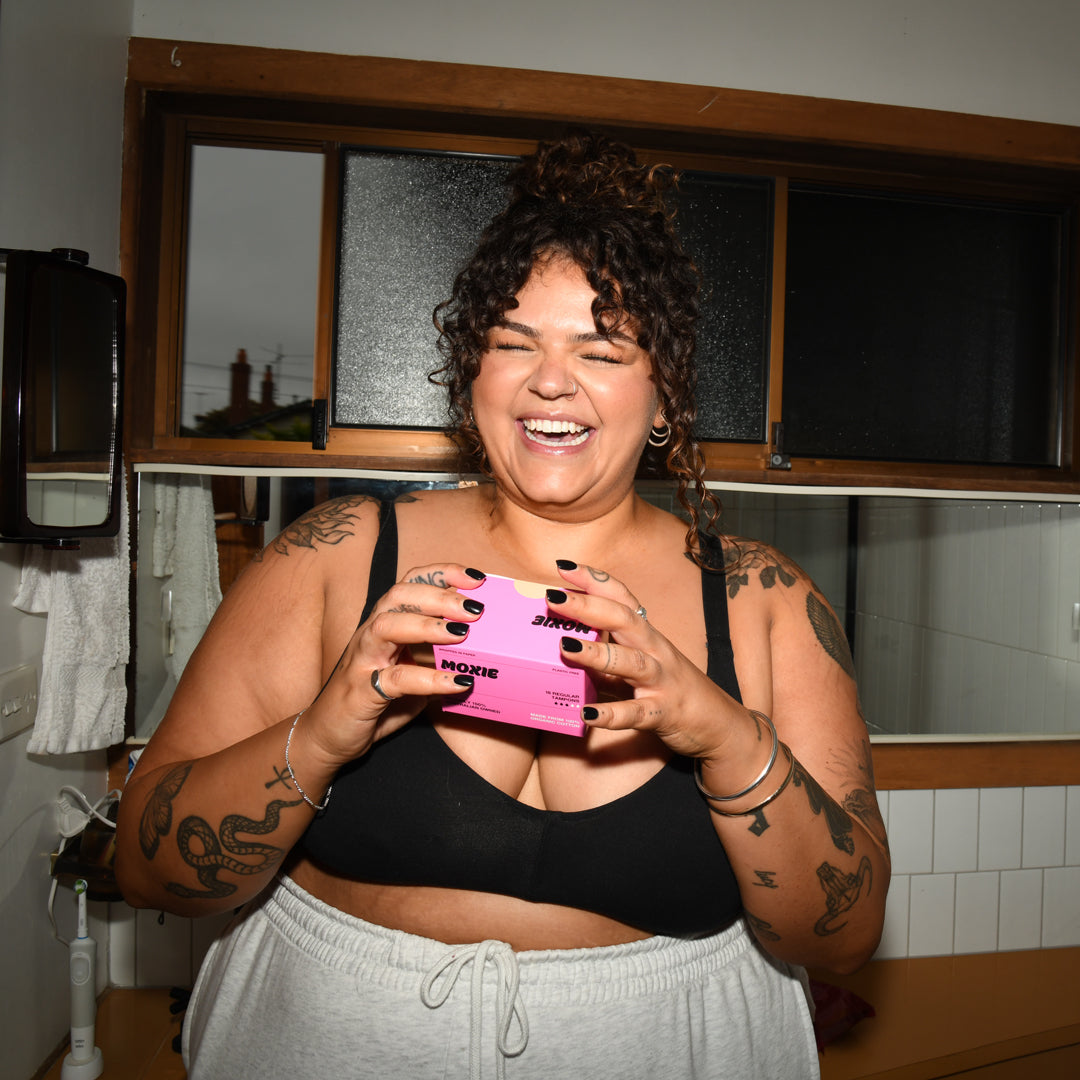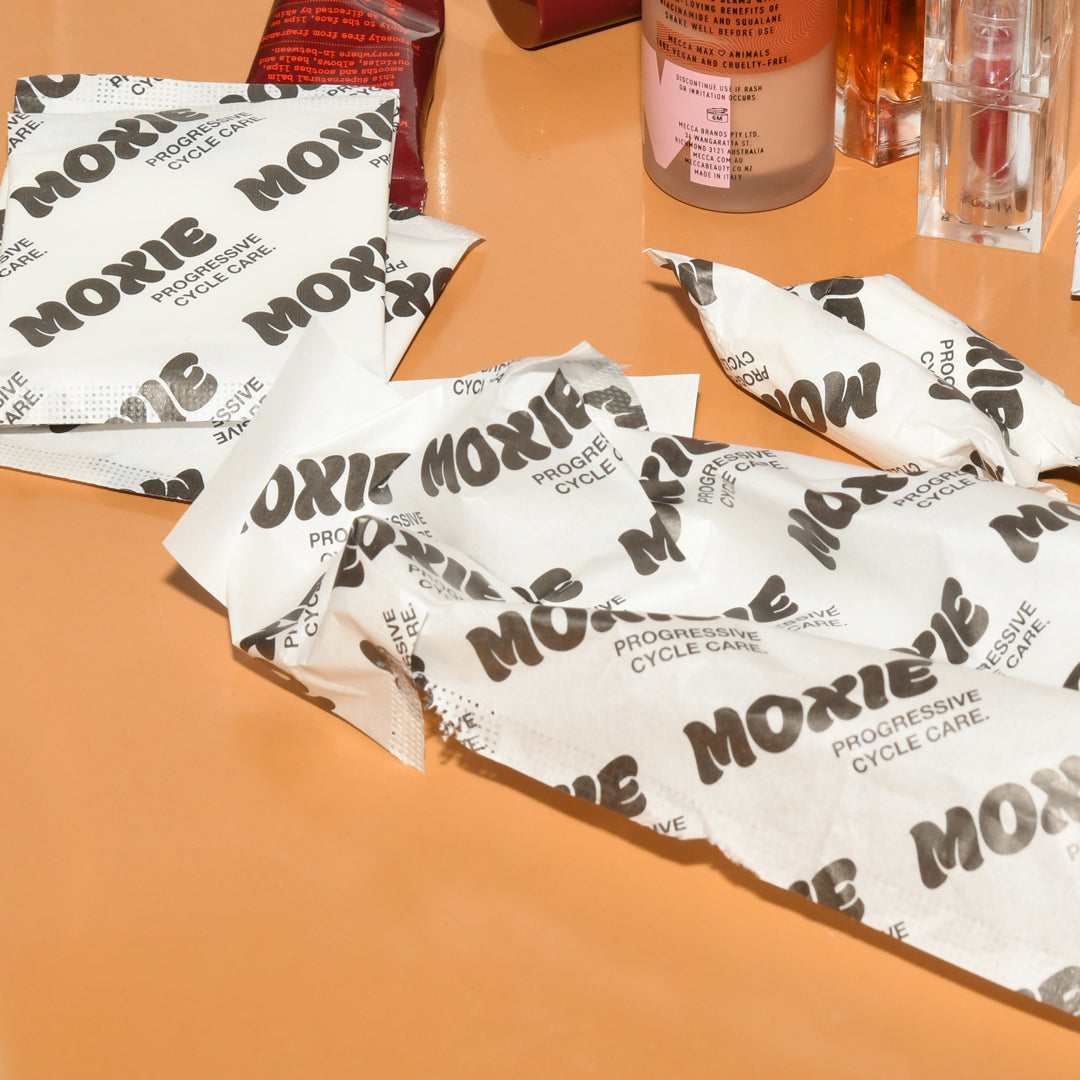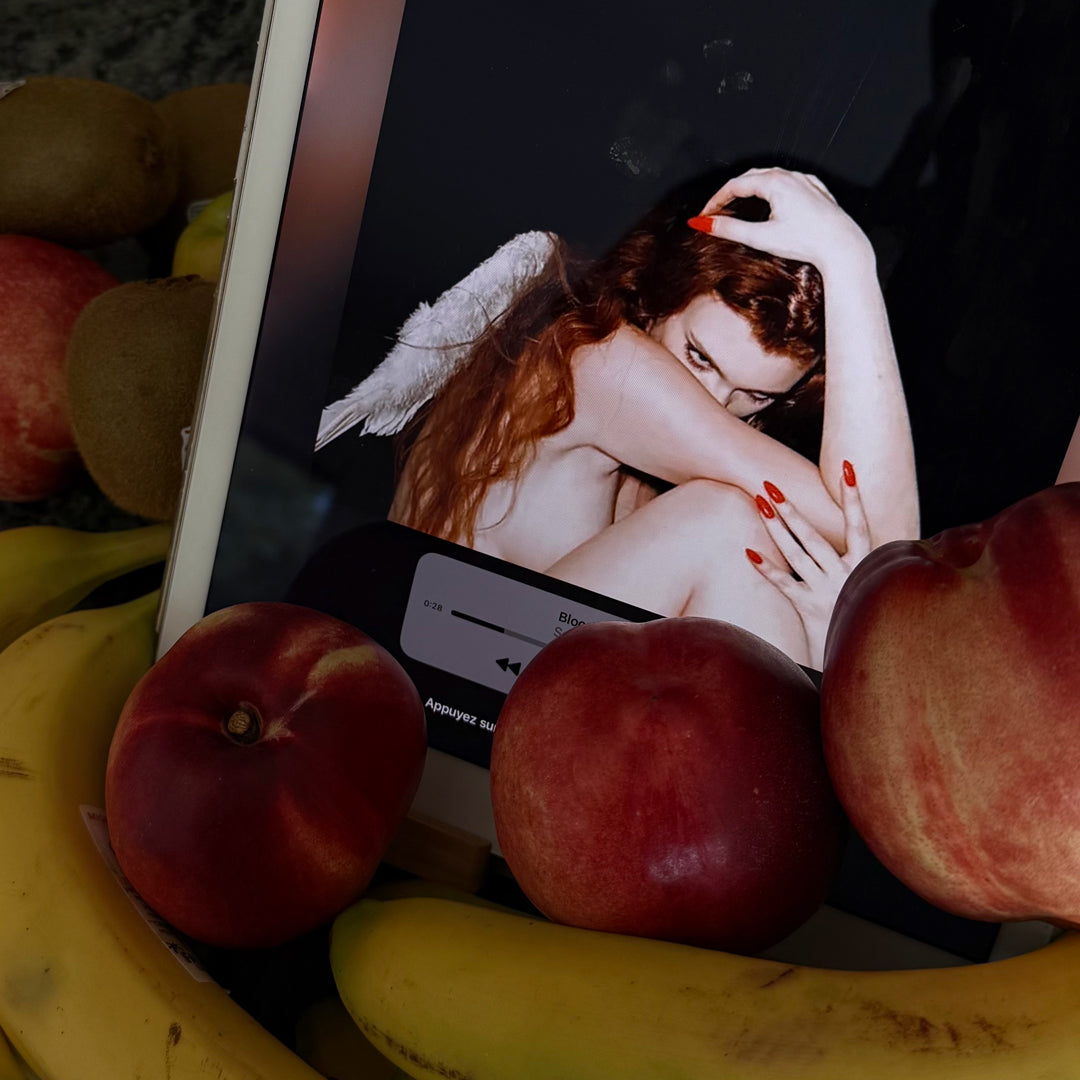How to talk about periods in a more inclusive way.

Image by Elle J Wade via Dupe photos.
Words by Joanna Anagnostou.
People who identity as women, men and non-binary can all experience periods. Growing up, you may have heard people say that periods are the sign of "becoming a woman". However, menstruation is not what defines being a woman. The definition of a "woman" is very simply “an adult female human being.” This definition does not list out all the criteria you must meet in order to call yourself a woman, because there are no criteria. To be a woman, you do not have to have a period, a uterus, or even ovaries to identify as one.
A lot of information we see online these days uses very gendered language when discussing periods. This language can be harmful because it reinforces the false idea that menstruation equals woman. This language implies that some may not be ‘real’ women if they do not have a period; it implies that trans men and non-binary people are women because they may have periods; and, it even implies that some cisgender (a person whose sense of personal identity or gender aligns with the biological sex they were assigned at birth) women are not women because they do not experience periods.
Cisgender women can sometimes experience conditions like amenorrhoea (the absence of menstruation), which can be caused by multiple factors such as stress, excessive exercise, a hysterectomy, structural problems or eating disorders. It can be due to genetic conditions and hormone imbalances such as Polycystic ovary syndrome (PCOS) or thyroid malfunction. It can be simply due to the process of menopause.
It's really time we progress the idea that periods are rooted exclusively in “womanhood” so that we can include others in the conversation and learn about the diversity of period experiences. We have heard about how women have struggled with periods through history; the pain, the bleeding, and the shame. Others face this today too, with added issues.
Navigating periods when all information, marketing, packaging and discussions are targeted towards women exclusively can make people feel excluded from something that is happening to their body. Most public bathrooms do not have period products in them, or sanitary bins to dispose of them - bringing your own products can be a safety issue for trans men and a source of discrimination and violence.
Periods can be a source of gender dysphoria and discomfort for many. Menstruation can be a reminder of the gender one was assigned at birth and bring on a wave of negative thoughts. Products that require insertion such as tampons and menstruation cups can also bring on dysphoria.
So how can we remove the stigma around periods for people who are not cis women? A great way to start is by speaking about periods in a more inclusive way in general. Despite recent comments from J.K Rowling, people that are not cis women can also menstruate and the way we talk about periods needs to reflect that. This does not mean we need to create new words to describe this group of people, because there is already existing language that describes them - we just need to use it more!
Periods are often thought of as a taboo topic to talk about. A lot of us have experienced sex education classes that were split by gender, and so half of our classes probably never really learned about periods - not in the classroom, anyway. It’s time to teach everyone about menstruation and really normalise talking about periods.
Here are some tips to make your periods conversations more inclusive...
Language to be conscious of/avoid:
- Using the words "women" or "girls" exclusively when discussing periods
- Referring to period products as "feminine hygiene" products or "women’s health" products
Instead, you could use language like:
- "People who menstruate", "people who have periods", or "menstruators".
- Referring to period products as just that! "Period products", "menstruation products", or use the names for the specific products you are referring to, such as "pads", "tampons", "liners", "menstrual cups", etc.
If you are describing the process of the menstrual cycle, you could say things like "the uterus", instead of "a woman’s uterus", and use biological and medical names or phrases. It should be noted that depending on the situation, talking about anatomy can be another trigger for dysphoria, so please proceed with caution and be mindful of keeping terms non-gendered.
(Also, don’t ask questions about someone’s anatomy. If someone asks for a period product, make no assumption about their gender, or ask questions about their genitals. Regardless of the situation or the person, asking about someone’s genitals is just not okay. This is only a conversation that would be appropriate (at certain times) between a doctor and their patients. Also don’t ask if the period product is for their girlfriend. It’s just another layer of assuming the gender of whoever needs the product).
Things to remember:
- Practice using gender neutral language
- Correct yourself if you make a mistake
Remember that while you are trying to change the language you use, it’s okay to make mistakes. Apologise for your mistake, make the correction and be mindful of your language next time. It is of course also okay to use gendered language when needed. If you are speaking about a specific person’s period experience, then you can use the appropriate gendered language and pronouns.
Changing the way we speak is incredibly important because using binary language excludes so many people from the conversation who may need these types of discussions the most. The way we talk about periods can make people feel isolated in their experience and struggle to access products and information if they do not see themselves properly represented.
Periods are not exclusively a “woman’s” issue. It does not hurt women to use different language when discussing periods. It does not erase the experience of women. Just because the majority of stories we have heard about periods have come from cisgender women doesn’t mean they are the only ones who experience menstruation. Using more inclusive language can make those that do not identify as a woman feel more included in menstruation narratives and create more dialogue about the experience of periods from people with different gender identities.
The best way to start using inclusive period language to remember that not all women menstruate and not all people who menstruate are women.

About the writer
Joanna Anagnostou (pronouns she/her) is a Master of Public Health graduate, specialising in sexual health promotion and health literacy. She is passionate about providing comprehensive, inclusive, and accessible education to all. Joanna engages and facilitates discussions with young people through different platforms to give them access to information about sex, health and society. She has done this through designing activities for high school students that discuss sexuality and gender diversity, respectful relationships, consent, and safer sex discussions, and teaching workshops on consent and what that means in the modern (and digital) age. Joanna is driven and passionate about sexual health promotion. She loves to talk about all things health and anything that has been historically thought of as “taboo.” She writes about sexuality, relationships, and health to help break down stigma, champion the rights of womxn and the LGBTQIA+ community and promote taking care of your mental health.



